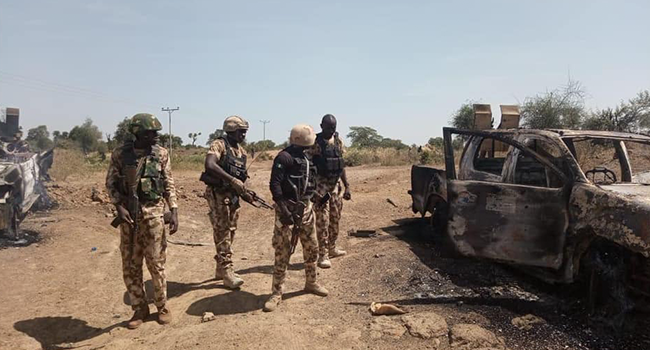Nigerian military neutralizes 50 ISWAP militants in major airstrike operation in Borno

The Nigerian Air Force has conducted extensive airstrikes that successfully neutralized approximately 50 fighters affiliated with the Islamic State West Africa Province (ISWAP), a faction linked to Daesh.
The targeted air operations, conducted in Borno State, mark a strategic setback for the militant group, which has posed persistent threats in the region.
The military action is part of Nigeria’s ongoing campaign to address the long-standing terrorism challenges in the Lake Chad region, where Borno State has experienced frequent assaults by extremist groups, making it a focal point in the nation’s counter-terrorism efforts.
Impact on Civilian Security
Air Force spokesperson Olusola Akinboyewa confirmed that the airstrikes hit ISWAP gathering points identified as sites for tactical planning and training, underscoring the operation’s importance for the safety of civilians in affected areas.
“The precision of these strikes has disrupted strategic ISWAP bases that often serve as staging grounds for attacks,” Akinboyewa said, highlighting that dismantling these locations is a step towards safeguarding the region’s population.
This offensive comes after intelligence reports identified key militant hideouts, allowing the Nigerian Air Force to coordinate its operations efficiently.
The strikes not only dealt a significant blow to ISWAP’s numbers but also demonstrated the military’s intent to curb the terrorist group’s influence across Borno.
A Strong Show of Military Resolve
Beyond ISWAP’s losses, these airstrikes symbolize a powerful assertion of the Nigerian military’s commitment to defeating terrorism.
The government has praised the operation as a victory for national security and a morale boost for residents in Borno, who remain particularly vulnerable to militant violence.
ISWAP and Boko Haram’s activities have resulted in thousands of deaths and the displacement of countless individuals in northeastern Nigeria, contributing to a severe humanitarian crisis.
The recent military efforts are thus viewed as essential to restoring stability and encouraging displaced residents to return to their communities.
Regional and International Cooperation
Borno’s counter-terrorism efforts have received international backing, particularly through partnerships with the Multinational Joint Task Force (MNJTF) and regional allies.
This coalition, involving countries around the Lake Chad Basin—Nigeria, Chad, Niger, and Cameroon—enables coordinated military actions and intelligence-sharing aimed at eradicating extremist threats across borders.
Recognizing the scale of the challenge, Nigerian authorities have pledged to reinforce these military operations with broader development initiatives aimed at stabilizing the region.
To support long-term recovery, the Nigerian government is implementing programs to improve education, healthcare, and economic conditions in areas impacted by insurgent violence.
About The Author
dailymailafric
I am an avid African news observer, and an active member of Daily Mail Africa.
I’m Passionate about staying informed on diverse topics across the continent,
I actively contribute to publishing on political, economic and cultural developments in Africa.



